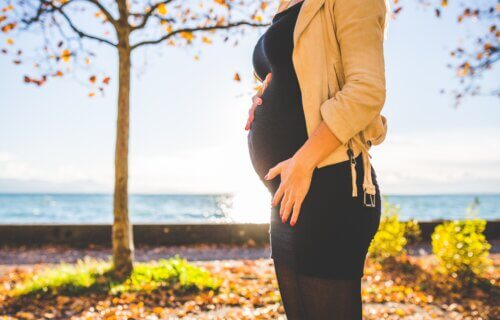BOULDER, Colo. — Could a move to the country help mothers-to-be give birth to smarter children? A new study finds breathing in all the smog in busy cities can have a harmful effect on a woman’s unborn child. Specifically, researchers in Colorado say two-year-olds exposed to air pollution while in the womb are more likely to have lower cognitive scores later on. The alarming study also finds that prenatal exposure to air pollution can lead to motor coordination and language problems.
According to the study authors, this is one of the first research projects to evaluate the relationship between prenatal pollution exposure and brain development during infancy. It supports other research that has found developmental changes in children after exposure to air pollution.
The researchers tracked the health of 161 Latino mothers and their children living in Southern California. The mothers provided a detailed background of their past living situations and when they were pregnant. The team then cross-checked the addresses with the U.S. Environmental Protection Agency’s Air Quality System, which keeps a record of roadside traffic, industry, wildfire smoke, and other pollutants in the area.
When toddlers reached the age of two, they underwent several neurodevelopmental tests that measured their cognitive, motor, and language skills. The study authors also took into consideration other factors that could affect child development, including how often the baby was breastfed, preterm birth, the baby’s birthweight, and the family’s socioeconomic status.
Clean air is particularly important later in the pregnancy
Pregnant mothers regularly exposed to air pollutants such as particulate matter (PM) 10 and PM 2.5 had toddlers with lower cognitive scores. Two-year-olds with the highest levels of exposure to air pollution while in the womb had the lowest neurodevelopmental scores. Overall, 16 percent of toddlers had a cognitive score that would indicate some level of neurological impairment. Researchers say the timing of when fetuses are exposed to air pollution matters too. Air pollution during mid to late-pregnancy led to worse neurodevelopmental outcomes for infants.
“The brain develops differently at different stages of pregnancy, and when you have a disruption at a critical window, that can affect the trajectory of that development,” says study first author Zach Morgan from the University of Colorado Boulder in a media release.
In the later stages of pregnancy, the brain is creating neural connections and circuits that suppose sensory, communication, and motor systems, the team explains.
Another explanation the study authors propose as to why air pollution causes harmful neurological damage is that inhaled pollutants are making direct contact with the fetus. The particles could then trigger the immune system to flare up, causing excess inflammation and oxidative stress that gets in the way of brain development. Other research from the same team has found evidence of pollution affecting a baby’s gut microbiome, which could also boost inflammation.
What can mothers do to avoid air pollution?
The study only looked at Latino toddlers, so it’s not yet clear if the results will be similar across other races or ethnicities. Latinos in Southern California are prone to living in environmental conditions that have higher levels of air pollution. However, the findings provide a starting point for seeing how air pollution impacts disadvantaged communities and what steps families can take to protect their child’s well-being.
Just because a woman is exposed to high levels of airborne pollutants, however, does not necessarily mean that her child will be cognitively impaired, warns Tanya Alderete, an assistant professor of integrative physiology at University of Colorado Boulder. The risk only increases in pregnant women in the second and third trimesters living in these environments, according to the study. She advises pregnant women to avoid exercising outside on days with poor air quality, investing in an air filtration system inside the house, opening the windows while cooking, and steering clear of secondhand smoke.
“This is just one of the many things parents-to-be should be aware of to give their child the best start possible,” says Alderete.
The study is published in the journal Environmental Health.

